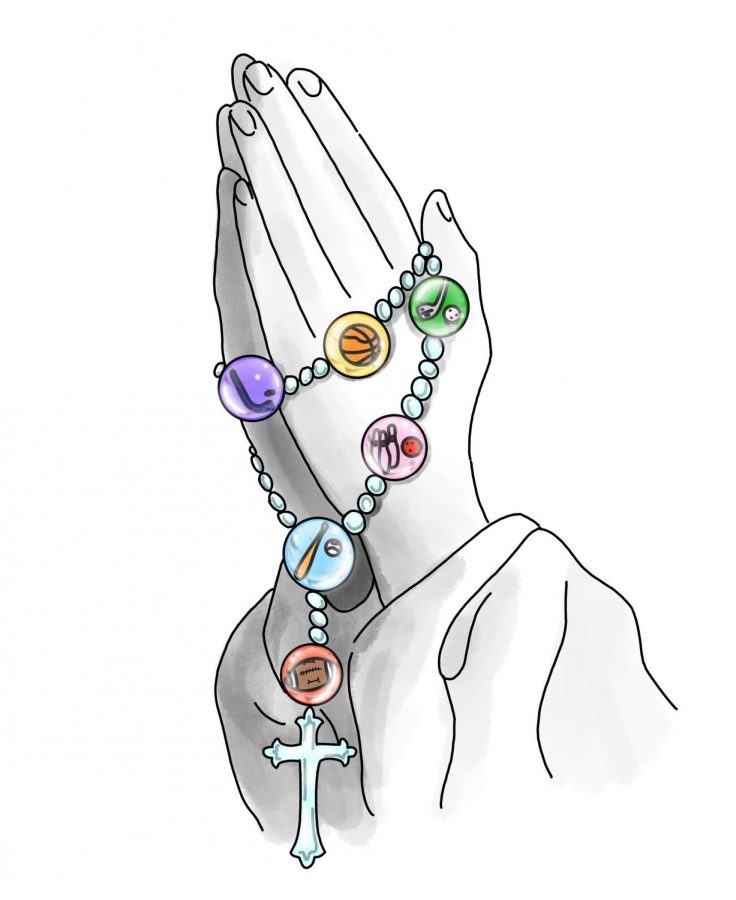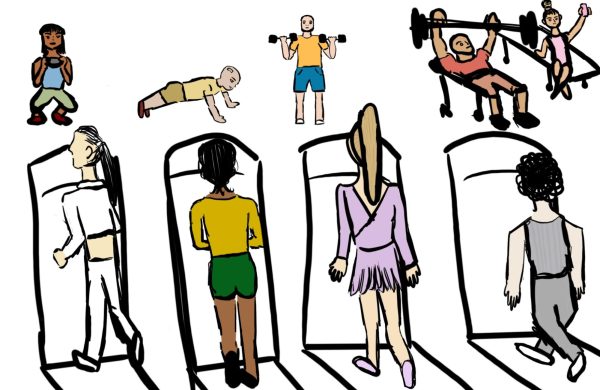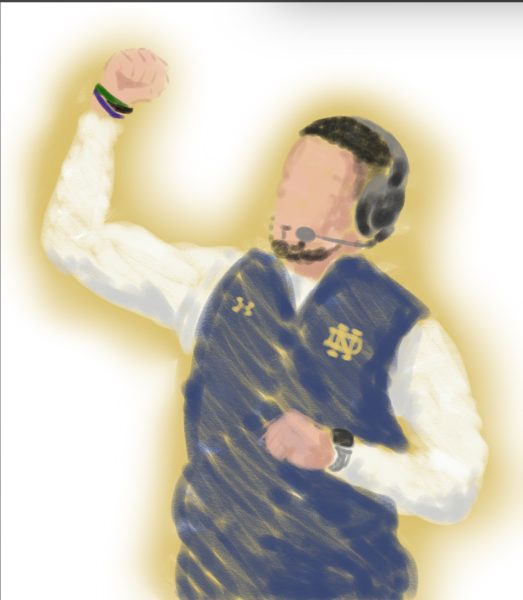‘God, please help us win. Amen.’
Coaches, players incorporate faith, Viatorian tradition in their teams
Every year, hundreds of parents send their children to Saint Viator in hopes that they will become faithfully enriched. With 85 percent of the student body participating in a sport according to the school website, these parents hope that their children’s teams reflect what is taught inside the classroom. Sports provide an outlet for students to express themselves outside of class, but do these activities allow for athletes to act out the faith-based values learned in school?
Most coaches share the school’s Catholic faith and want to promote it on their teams. Viatorian coaches especially understand the significance of faith and choose to keep spirituality as a focus on the field.
“After I became a Viatorian, I wanted to get involved in sports,” said Brother Peter Lamick ’07, assistant varsity football coach and head freshman basketball coach. “I did it as a way to be present to young people; to help them grow and develop in something that is very important to them. Particularly with basketball and football, you’re trying to build a community where each individual is willing to sacrifice in order to achieve the overarching mission. In a way, this is very similar to the mission of the Church. There are many similarities between how a team works, and how the Church works.”
Coaches like Brother Lamick inspire many players who want to deepen their faith. Many student athletes find that the emphasis on improving their relationship with God strengthens their relationships with other teammates.
“Our coaches and staff have made it a precedent to help their players become good young men and dive deeper into our spiritual lives,” said junior John Kaiser, a varsity football player. “Praying before games, forming a brotherhood, and taking care of my teammates and others are only a few ways in which the football team has impacted me to fulfill my faith.”
For the many former alum who return to coach the sports they once played, they also offer a unique perspective, as they can take their spiritual development throughout high school, and present it to a new generation of athletes. Most choose to promote its values, even if they do not want to force religion on players, to mold players into well-rounded individuals.
“Our grasp on the faith component may be different from other programs,” said Patrick Gaeger ’08, varsity lacrosse coach. “I try to let our student athletes understand that it is alright to be at a different point in your faith life, but don’t let that deter you from giving back to the community. You don’t have to be the most religious person to experience service. I try to tell [the team] when you do this stuff, do it through the lens of being a great human being.”
One thing that is heavily encouraged to the team, however, is charity. While not all student athletes engage fully in their faith, many find benefit from the team service opportunities.
“Traveling to St. James and helping them with restoring the outside of the school was not only beneficial to them, but it strengthened our spirituality, as well as our team’s bond”, said junior Leo Izquierdo, varsity lacrosse player. “Doing service is necessary not only to grow in faith, but also to build strong bonds within the team.”
Faith is a universal topic expressed by most Saint Viator sports. The way in which the sports choose to express a faith aspect to athletes, however, is different. Even for teams in deep playoff runs, faith remains almost as central to the players as the sport itself.
“We made sure to pray before each game. It really gave us a chance to slow things down,” said Mia Parise, varsity volleyball player. “We were encouraged to pray before each game, play our hardest, and leave the rest in God’s hands.”
Although coaches encourage faith among the team, some are not as supportive when student athletes want to develop their faith at the cost of a few practices or a game through retreats.
“I have seen many student athletes who want to go on retreats but don’t feel comfortable because of their coaches and teams,” said senior Livia Salituro. “But I know a lot of coaches are supportive of students going on retreats even if it doesn’t seem that way.”
It is important for athletes to keep in mind that they are responsible for their own faith lives, and it isn’t up to a team to keep an athlete’s faith life active. If an athlete is seeking to grow in their faith, a good coach will absolutely be of help to that athlete. However, if an athlete puts in no effort into their faith life, no coach can be expected to do it for them. An active faith life from a team has numerous benefits. Nothing is more important to a coach who encourages faith, however, than developing their players into well-rounded individuals who are spiritually active off the court and play their hardest on the court.
Your donation will support the student journalists of Saint Viator High School. Your contribution will allow us to purchase equipment and cover our annual website hosting costs.





